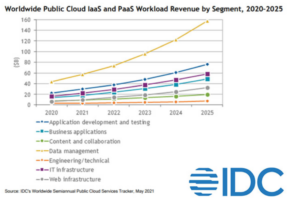Google Cloud last month changed how it charges for BigQuery, its flagship offering for SQL analytics on structured data and machine learning on unstructured data. Customers concerned about keeping their BigQuery budget on track after the changes may be interested in a new release of Unravel Data’s data observability solution.
On July 5, Google Cloud officially replaced its flat-rate and flex slot pricing with three new pricing tiers, including Standard, Enterprise, and Enterprise Plus offerings. Gerrit Kazmaier, the vice president and general manager of Data & Analytics at Google Cloud, said in a May 29 blog post that the changes will give customers more flexibility and predictability.
“With our new flexible pricing options, the ability to mix and match editions, and multi-year usage discounts, BigQuery customers can gain improved predictability and lower total cost of ownership,” Kazmaier writes. “In addition, with BigQuery’s new granular autoscaling, we estimate customers can reduce their current committed capacity by 30-40%.”
Sanjeev Mohan, a former Gartner analyst who now works independently at his firm, SanjMo, says the new BigQuery pricing scheme will, indeed, help customers. “Fine-grained autoscaling ensures customers pay only for what they use, and the new BigQuery editions [are] designed to provide more pricing choice for their workloads,” Mohan says in the Google Cloud blog.
The pricing changes may end up doing just what Google says they’ll do, but it never hurts to verify that they, indeed, are. That’s where a third-party data observability tool can come in.
One of the data observability tool vendors taking a special interest in the BigQuery pricing changes is Unravel Data, which also bills itself as a FinOps (finance operations) vendor.
Yesterday, the Palo Alto, California vendor says an update to its product gives BigQuery customers greater understanding into their BigQuery bills, including the specific cost drivers, how costs are allocated, and the performance and cost optimization of SQL queries.
The company says it can help drive better optimization of BigQuery environments thanks to “deep observability” into the jobs, users, and code levels involved in the Google Cloud workloads. The results of Unravel’s AI-powered analysis can deliver “optimization recommendations for slots and SQL queries, including slot provisioning, query duration, autoscaling efficiencies, and more.”
Unravel cites data from IDC from 2021 showing data management was the fastest growing workload on the cloud, representing 39% of the total spend on the cloud. What’s more, unstructured data analytics and data management was the fastest growing segment in the cloud, growing at a 41.9% compound annual growth rate (CAGR). No other workloads were close to data management in terms of total cloud spending, and nothing was growing as fast.
Kunal Agarwal, Unravel Data’s CEO and co-founder, says keeping track of that usage is important for customers that want to stay within their cloud budgets.
“Today, most organizations do not have the visibility into cloud data spend or ways to optimize data pipelines and workloads to lower spend and mitigate problems,” he said in a press release. “With Unravel’s built-in AI, BigQuery users have data observability and FinOps in one solution to increase data pipeline reliability and cost efficiency so that businesses can bring even more workloads to the cloud for the same spend.”
Related Items:
Unravel Data Aims to Straighten Out The Data Stack with $50M Series D
Unraveling Hadoop and Spark Performance Mysteries
The post Unravel Keeps Tabs on BigQuery Usage Following Pricing Changes appeared first on Datanami.
0 Commentaires